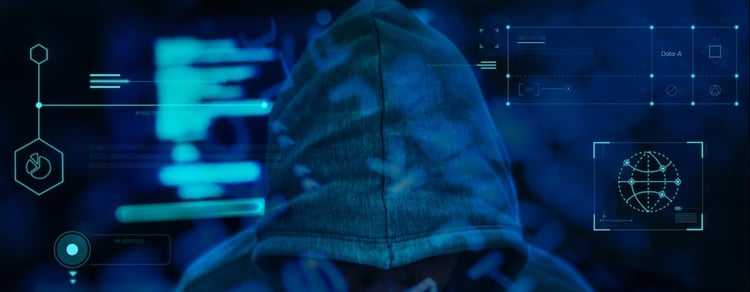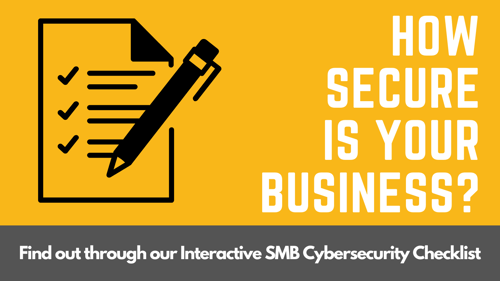The short answer is yes…very. Hackers routinely find and exploit vulnerabilities in software that will allow them to attack your sensitive data and critical infrastructure. Cybercrime has escalated rapidly in the past few years, and the more success cybercriminals have, the more organized and determined they have become. And if you think cybercriminals wouldn't be interested in a smaller business or nonprofit, think again. Small to midsize businesses are actually one of their favorite targets, since they typically don't have the IT staff needed to keep hackers at bay.
If your business struggles to prioritize updating and patching software, you're definitely not alone. Even if you have an internal IT department, providing help desk support and other daily tasks can eat up quite a bit of time. Most companies report that their IT personnel do not have enough time in their day to apply patches quickly.
Why Is Patch Management Important?
You're not imagining it. Software companies are sending out more updates than they used to, and constantly having to apply them can be frustrating. But the reason software companies often release an update is because they have identified a vulnerability in their product. While each patch can be a drain on productivity, they are actually providing you with a very important service. The longer you take to apply the update, the longer your business is a sitting duck for hackers.
Top Routinely Exploited Vulnerabilities From 2021
CISA recently released an in-depth report on the Top Routinely Exploited Vulnerabilities hackers used in 2021 to access sensitive data and critical infrastructure. Key Findings include that cybercriminals are typically targeting internet-facing systems like email servers and virtual private network (VPN) servers when a new vulnerability is identified. Every day, and sometimes every additional hour that a critical patch is not applied represents additional risk.
Of course, many businesses make it even easier for hackers if they are using software that is no longer supported by a vendor. In that case, those critical updates will no longer come, and hackers can use well-known vulnerabilities to access your system any time they like.

Best Vulnerability Management Strategies
Ideally, organizations would update their software, operating systems, applications, and firmware almost immediately after an update is released. If your IT staff is overwhelmed trying to keep up with the steady stream of patches and software updates, one solution may be to hire more staff. However, even those businesses that have the budget to hire more IT personnel may find it difficult to do so.
As the industry continues to grow quickly, recruiting has presented a serious challenge that's likely to continue for several years, if not longer. Fortunately, hiring more staff is not the only way to keep up with frequent upgrades. More tenable solutions include the following:
- Use vendor-approved workarounds for patches that cannot be quickly applied.
- Use a centralized patch management system that can keep you informed of important upgrades for your tools, and often apply them automatically.
- Replace software that is no longer supported.
- Consider migrating to the Cloud. A Cloud Service Provider (CSP) will keep your tools secure and constantly updated for you.
- Get managed IT or co-managed IT services from a Managed Service Provider (MSP). A great MSP can take on all or part of your business's IT tasks, so you can significantly upgrade your capabilities without adding full-time staff.
Other Reasons To Keep Software Updated
The biggest reason you should keep your software updated is it’s one of the best ways to keep your infrastructure and data secure. However, software companies release updates for a number of reasons. In addition to safeguarding your data, you may see additional benefits to applying an update:
It Might Work Better
The update may fix a few bugs, or help your software play nicely with other applications. In the long run, that may reduce quite a bit of workplace frustrations.
It May Contain New Features
The update may mean you’ll gain new functionality without having to purchase an additional tool.
It Might Be Easier To Use
Software developers are always trying to make their tools more intuitive and user-friendly. If you aren’t applying updates often, you may be missing out on a great way to boost productivity.
It’s Critical to Your Business
Many companies avoid updating the very tools that are most important to their business because they don’t want any disruptions. The irony is that it’s all the more reason to update them in a timely fashion. If an attacker were to get in, those systems are the very last thing you want them to access. And in that not entirely unlikely scenario, you’d need vendor support to fix it.
A Managed Service Provider Can Help
Considering how difficult it is to recruit and maintain IT personnel, getting expert help from a world-class MSP like Marco is often the best solution for companies that are struggling to prioritize cybersecurity while offering help desk support for hybrid and remote work environments. Cybersecurity can be intensely stressful on internal IT departments, especially in recent years; increasing their burden may mean it's all the more difficult for you to retain the personnel you desperately need.
Migrating to the cloud may provide sufficient relief for overburdened IT departments, as a reputable CSP can keep your online tools updated automatically and provide additional cybersecurity features. However, a cloud migration may present its own challenges. Marco’s world-class experts are always happy to assist your team with larger projects like these to minimize downtime.
